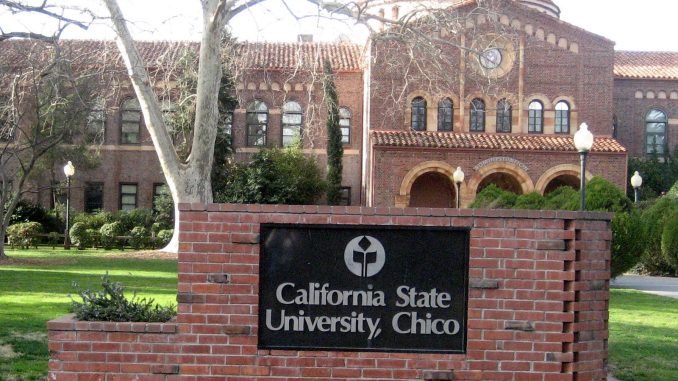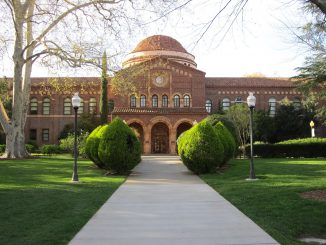
By by Mikhail Zinshteyn (for Cal Matters)
This story was produced by CalMatters, an independent public journalism venture covering California state politics and government. For more info, visit calmatters.org.
California State University faculty overwhelmingly approved a new labor contract, moving the nation’s largest four-year public university system a step closer to ending arguably the most acrimonious labor standoff between educators and university leaders in the system’s history.
The California Faculty Association said today that 76 percent of members who voted approved the tentative agreement, a set of raises and expansions of benefits that exceeds what Cal State negotiators were offering during eight months of contract negotiations but fell short of initial union demands.
The union represents 29,000 professors, lecturers, counselors, coaches and librarians.
All that remains to finalize the contract is a vote from Cal State’s board of trustees, who are scheduled to meet March 24-27. It’s unlikely the board will turn down a contract negotiated by a team that reports to the system’s new chancellor, Mildred García, whom the trustees hired last year. The union wants the board to meet in a special session to approve the deal sooner. If trustees approve it, the deal will last through June 30, 2025.
“We look forward to working together to continue our advocacy for an equitable CSU,” Charles Toombs, union president and a professor at San Diego State, said in a statement that also thanked members for organizing and joining the strikes. “We have special gratitude to our students and sibling union members, as well as elected leaders and public education allies who joined our cause and showed up in favor of investing in our CSU.”
García’s office said in a press release that it’s “pleased” with the vote’s outcome.
The week-long vote followed a one-day strike last month, the first time faculty walked off the job at all 23 Cal State campuses in the system’s history, and strikes at four campuses in December. Some union members criticized the union’s leadership for ending the rain-soaked January strike the day it began, arguing a better deal could have emerged had the strike lasted the full five days union leaders envisioned. Critics also faulted the deal for agreeing to a raise that technically isn’t fully guaranteed.
Core to the union’s initial demands were that Cal State negotiators approve a 12 percent salary hike for all members for the 2023-24 year. Cal State had countered with a 5 percent offer in 2023-24 and 5 percent increases the following two years, if state lawmakers increase Cal State’s main state funding by 5 percent each year—something they’ve done the past two years but hardly a guarantee going forward as the state eyes multibillion-dollar budget deficits. The union’s leaders refused any deal that was conditional. But Cal State was loath to give any union more than 5 percent for this budget year; doing so would have triggered new salary negotiations with some labor groups.
The contract just approved by faculty members locks in 5% for 2023-24 that’ll be applied retroactively. Another 5 percent kicks in this July if Cal State receives as much state funding for its core programs as it did last year—a likelier outcome and one Gov. Gavin Newsom proposed in his budget blueprint, but still a contingency.
The approved contract also extends parental leave from six weeks to 10 weeks—short of the full semester the union initially sought. It also raises the salary floor by at least $3,000 for the lowest paid faculty on top of the across-the-board raises.
Again, that deal exceeded what Cal State negotiators were offering, which was no extra boost for these workers, but is less than what the union initially wanted. Those workers would see total raises of about 15 to 22 percent.
A website that called for a “no” vote on the contract is telling faculty to remain in the union, despite the contract’s passage.
“Everyone who voted ‘yes’ and everyone who voted ‘no’ can now work together to build power for the bargaining and strike actions to come,” the site read.




Be the first to comment